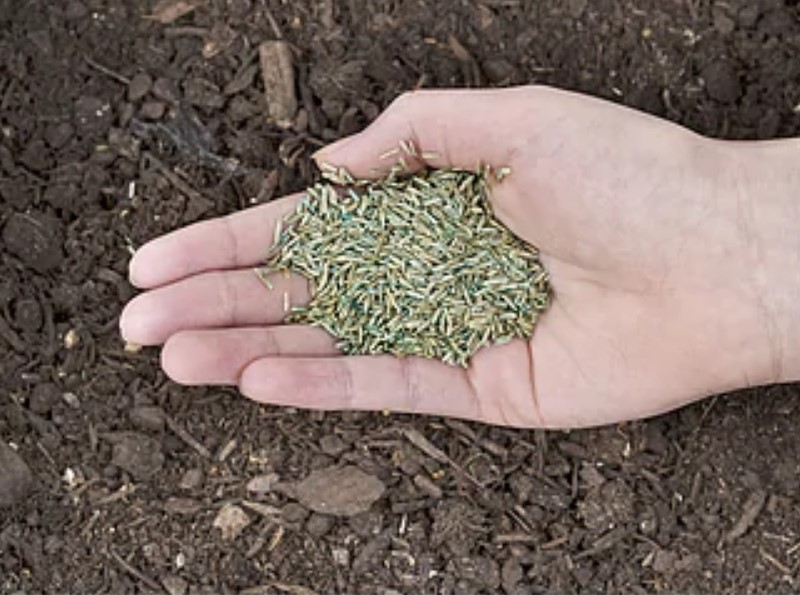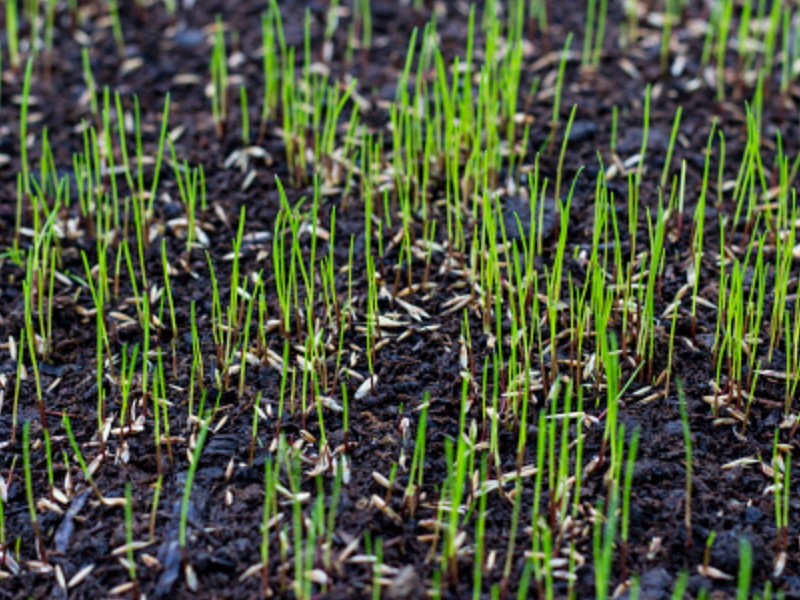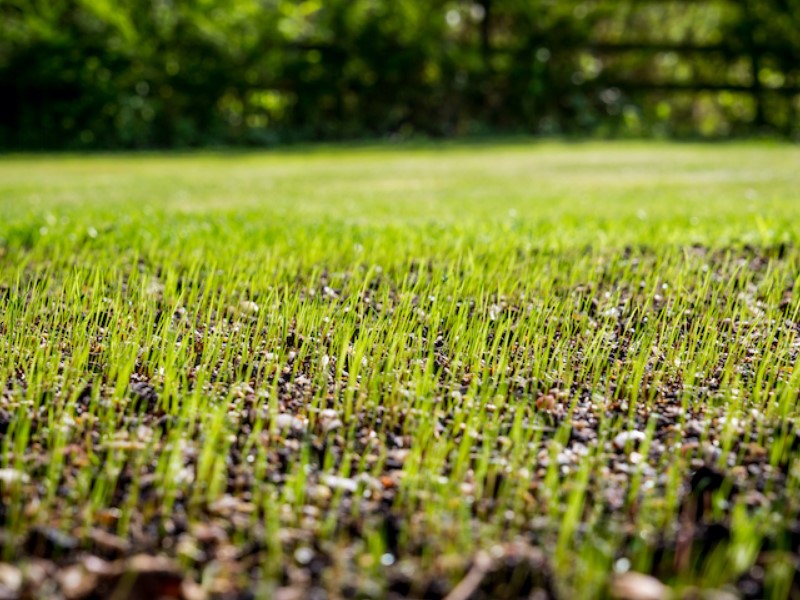If you are just getting started in home improvement or DIY, the mere thought of seeding your lawn can be very daunting. The good news is that sowing grass seed is actually easy so you can enjoy a luscious green lawn soon.
Different Types of Grass Seeds
In general, grass seeds are broken down into two primary seed categories: cool season and warm season seeds. Based on the name itself, warm-season seeds grow better in warmer conditions. These are also best planted in early summer or late spring, depending on the climate in your area. The only disadvantage of warm-season grass seeds is the fact that they can grow dormant or brown when the weather turns cold.

On the other hand, you can plant cold season seeds anytime from autumn or fall to early spring. The main concern with these cold season seeds is the exact opposite of that of warm-season ones. These seeds tend to go brown or yellow when the weather becomes too hot.
How to Choose the Right Kind of Grass Seeds
There is no surprise at all if the market is filled with a selection of grass seeds. All species together with their variants are either artificially or naturally developed to suit various environments, have varying germination rates, produce diverse finishes, and more.
When searching for the best type of seeds for your lawn or garden, below are some questions you might want to ask yourself first:
- Will you lay a brand-new lawn or do you just want to patch some spots?
- How much traffic does your lawn get?
- How much available time do you have for lawn maintenance?
- How much shade or the sun does the exposed area receive during different seasons?
- What specific type of lawn finish do you want?
It is important that you answer all the above questions first before anything else. For example, if you plan to use your lawn as a play area for your kids with lots of traffic, you might want to opt for robust and hard-wearing grass seeds. If the proposed area only receives a minimal amount of sun, it will slow down the rate of growth and germination. You also need more durable seeds that can endure even in the shade.
The biggest factor here is time. The first month of lawn care requires both commitment and time on your part. There are seeds that are resilient by nature while others need more attention. There are instances when it means you need to water them thrice a day. You also need to assess if your current lifestyle allows this level of maintenance or not.
The grass seeds you choose are also determined by whether you will fill in patches or lay a fresh lawn. If you need to fill patches, make sure that you pick grass seeds with the same finish as that of your existing lawn. The last thing you want is for your lawn to have odd-looking patches.
Factors to Consider When Shopping for Commercial Grass Seeds
Mixed grass seeds are those that contain a variety of several grass seeds in one box. There are various grass species in a mixed box. Blended seeds only have a single kind of seed with a variety of that kind. Meanwhile, straight seeds only feature one type as well as one variety of the seed species.

It is always good to find products whose labels indicate the percentage mix of seeds. A box of seeds that don’t state the percentage mixture may indicate poor quality of seeds. The label must also specify the germination percentage.
Search for seeds with a percentage of more than 75%. It shows the percentage of seed that will germinate under the right sowing conditions. It is important to maximize your percentage yield to make the most out of your money. You will just get a patchy lawn that requires refilling if you don’t do so.
Best Time for Planting Grass Seed
Gardening experts are at a general consensus that the most ideal time of the year for planting grass seeds is from late summer through mid-autumn. This is because the soil has less competition from weeds. In addition, the soil is also warmer and more fertile, with the tendency to be damper because of the air’s high level of humidity. All of these are ideal conditions to allow quick seed germination.

However, if you are like other amateur gardeners who missed the summer or autumn deadline, there is still a chance for you to sow your grass seeds during spring or early summer. It is not recommended to try to plant grass seed in the middle of summer although there are gardens that germinate during this time, depending on the environment and climate. For instance, if you are living in a high-rise area such as the mountainside with regular rainfall and high levels of humidity in the area, this might be viable, yet experts advise against giving it a try.
Steps for Planting Grass Seeds
After choosing the specific type of grass seeds you need to want, you can now start sowing them. Below are the steps you need to follow:
- Begin by preparing the soil. The topsoil must be loosened for 2 to 3 inches using a rake. Ensure that the sowing area is level to avoid the accumulation of excess water.
- Plant the grass seeds, spreading them evenly by hand. Use the seed guide as a reference. Rake the seeds lightly for about ¼ inch into the soil.
- Use a fruit need or anything similar to cover the seeds to prevent birds from eating them. Water the seeds regularly. When the grass reaches 2 inches or higher, it is now time to start saturating the grass. Monitor the area closely for any weeds and remove them right away.
How Long Will It Take for Grass Seeds to Grow
Sadly, there is no such thing as a specific answer for this. Lots of factors affect the growth rate of grass seed depending on the type, watering rate, environment, sun exposure, and temperature.
